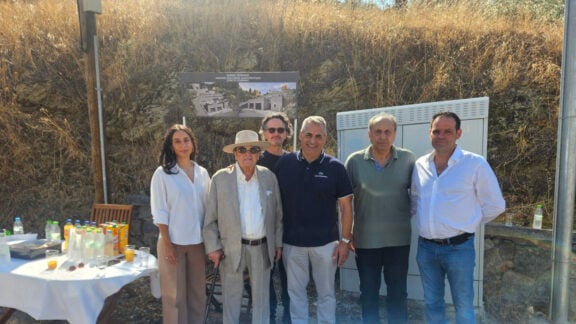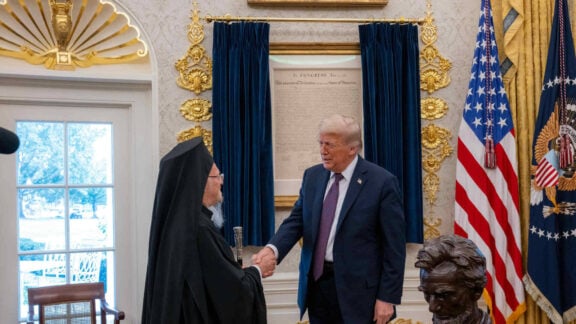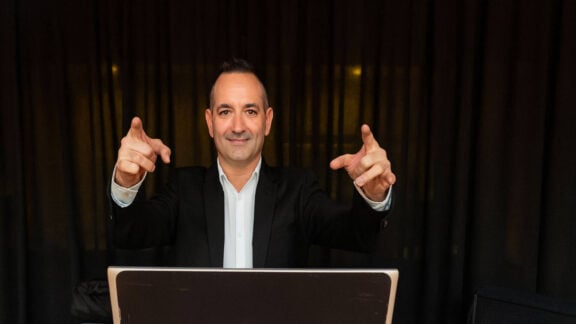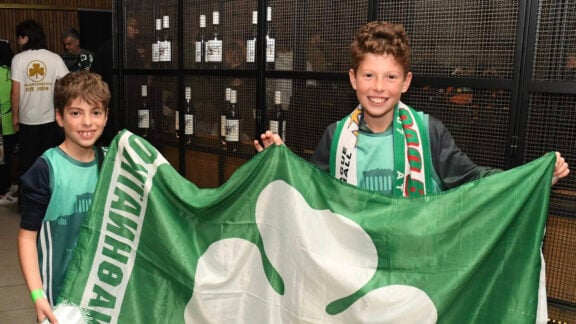Forty-three years have passed since the summer of 1974, and the Cyprus issue is still a matter that divides, not just the island itself, but Greece and Turkey, the United Nations, the European Union and so on.
While the dream of a country without barricades lived on during 2016 with hopes of reunification reaching their climax two weeks ago, in the first week of July 2017, it became clear this island is bound to be divided.
The latest talks saw the two sides argue once again about the sharing of power; the idea of a decentralised state fell on stony ground as Turkish Cypriot leader Mustafa Akıncı, could not see the removal of his troops and the reunification of the island under a federal umbrella.
Akinci and Greek Cypriot President Nicos Anastasiades have both staked their political careers on a solution, however the first will not comply with the terms of the latter.
At the end of the latest UN talks on Cyprus held in the Swiss Alps, the intergovernmental organisation’s secretary general, Antonio Guterres, announced the collapse of the deal to the reporters saying: “I wish the next generation good luck on this and that one day maybe Turkish Cypriots and Greek Cypriots will decide together that there is no longer a need for troops on the island.”
Meanwhile, the Turkish foreign minister, Mevlüt Çavuşoğlu, blamed the dead-end on insistence of Athens and the Greek Cypriot side for Ankara to pull out its 40,000 strong military force on the island entirely.
“For Turkey and the Turkish Cypriot side it is not acceptable for troops to be withdrawn,” he said adding that Turkish Cypriot citizens will be concerned for their safety, with Greece’s foreign ministry spokesman Stratos Efthymiou answering that there cannot be talks of a federal Cyprus with “occupation troops on its soil and Turkey clinging to the right of unilateral intervention”.
“This is a non-starter for us,” he told the Guardian before departing from Switzerland. “We were willing to negotiate [troop numbers] but Cyprus is an independent EU state. It is not acceptable for a third state to have the unilateral right of [military] intervention in 2017.”
These days, the memories of the Turkish invasion of 20 July 1974 come to life not only on Aphrodite’s island but all over the world, as one in three Cypriots became refugees overnight. Melbourne, being the city with the third largest population of Greeks outside the motherland, has also become the home of thousands of Cypriot people.
Daniel Andrews
The Victorian Government recognises the Republic of Cyprus as a sovereign, and indivisible country. Moreover, we affirm our continued support for a diplomatic resolution and the reunification of the island. We believe that a diplomatic resolution is the best hope for the demilitarisation of Cyprus and, eventually, its reunification. Every community has the right to live in peace and to enjoy the benefits that peace confers.
We are hopeful there will come a time when the Greek and Turkish Cypriot people can live peacefully side-by-side.
Matthew Guy
On this 43rd anniversary of the tragic events of 1974, I send my best wishes to our Greek Cypriot community, as it comes together to commemorate this most important occasion. During this time we remember the courageous men and woman of Cyprus who lost their lives and loved ones during one of the most tragic periods in Cyprus’ history. Despite the numerous efforts over so many years, no resolution has been reached, yet the pain, suffering and loss for so many continues. Solving the Cyprus issue is important for so many involved.
The Liberal Nationals coalition supports a just and lasting settlement and hopes that common sense prevails, with all parties acknowledging that living in harmony with mutual respect of each other’s basic rights, culture and religion benefits all. The events of 1974 led to the displacement of thousands of Cypriots as refugees to many parts of the world, including Victoria, where they have made their home, become an integral part of our social fabric and contributed significantly to Victoria. The coalition regards the diversity of Victoria as one of our greatest assets and encourages all people to persevere, enhance and share their heritage and maintain their language. I wish all those participating in the commemorative events all the best for the future and encourage all Victorians to continue to work to ensure that Victoria remains Australia’s most cohesive and harmonious multicultural state.
Maria Vamvakinou
Marking 43 years from the black anniversary of the invasion, all of us who care and hurt for Cyprus and its people, we are called to contribute to change what has been done and abolish the status quo of division which holds our Cyprus broken in two. Despite the disappointment that came with the failure of the Cyprus issue talks in Crans-Montana, I firmly believe that I speak for the majority of the Labor party, for the Australian Parliament and the Australian people, when I say that we are at the disposal of the island’s leaders and the people of Cyprus; we pledge to help their efforts reach, as soon as possible, a fair, viable, functional and normal solution, where all Cypriots will feel – and will be – safe. A solution that will both reflect and service the legitimate expectations of the Cyprus people; a solution that will reunify our Cyprus with the hope of a better, fairer and creative future.
Even though Cyprus talks have reached an impasse, I hereby call the leaders of Australia to support all efforts for a peaceful and viable solution that will safely lead to the reunification of Cyprus, under the umbrella of prosperity and justice for all its residents, including the Cypriots of Australia.
In spite of those 43 years that have passed since the 1974 events, the disappointments and the dead-ends our efforts to reach an agreement regarding the Cyprus issue, our memory of the tragedy and the injustice that is being carried on has not faded. On the contrary, it deepens our persistence to fight.
The ultimate goal, for those of us that care, agonise and strive for Cyprus is and will be the ending of the division, which does not only affect the rights and interests of the Greek Cypriots but also of the Turkish Cypriot people; of all Cypriot people.
Our goal is the reunification of the island . . . and with Gough Whiltam’s example as a compass, we remain firmly by the side of the Cypriot people and we insist on claiming a fair, viable and safe solution to the Cyprus issue based on what has been decided by the UN, international law, basic human rights and all the European Union has established.
Jenny Mikakos
It is a tragedy that Cyprus remains divided. It saddens me that even after 43 years now, we continue to wait and hope that a resolution can be found. I’ve had the fortune of visiting this beautiful island and have vivid memories of driving through the buffer zone in Nicosia. It is an experience that will stay with me forever.
As Australians, we are fortunate to live in a harmonious, multicultural and democratic nation where tolerance and diversity are rightly celebrated. It is my hope that every person on earth is blessed with such fortune. It is my hope that there will come a time when both Greek and Turkish Cypriots can live together, side by side and a lasting peace can be realised. Peaceful co-existence in a free and democratic Cyprus would be a just and dignified outcome for all and help to ensure the undoubted economic prosperity of Cyprus can be fully realised.
I stand with all of the Cypriot community in Australia in seeking the reconciliation of Greek and Turkish Cypriots. I am grateful for the resilience of the Cypriot community of Australia and thank them for their tireless work. Like them, I look forward to the day when this matter can be fully resolved and that Cyprus can be whole again.






